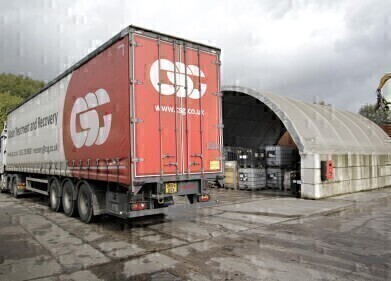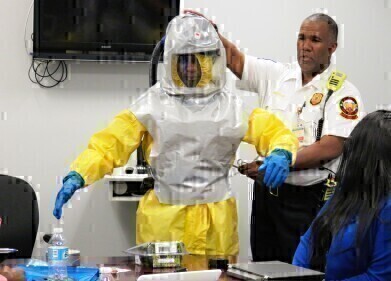Hazardous Waste
Why Is Hazardous Spill Clean-up Important?
Dec 28 2022
Any industrial or commercial workplace where hazardous substances are stored or handled runs the risk of spillage. While preventing spills from occurring is not possible all the time, using appropriate storage containers and methods can minimise the risk of one happening. However, even the best prepared facilities and workforces will experience a spill from time to time.
Addressing the spill as a matter of urgency is of the utmost priority, since allowing the substance to further contaminate the surrounding air, water and land can have devastating repercussions. In this article, we’ll examine what can occur if hazardous spills are allowed to spread, as well the importance of having a robust protocol for dealing with hazardous spills in place.
Triple threat
Generally speaking, the negative consequences of hazardous spills fall into one of three categories. First and foremost, they pose a risk to the health of the humans exposed to them. Depending on the type of hazardous substance in question, this risk can vary in nature. For example, corrosive substances can cause burning, abrasion and irritation to the skin, while biological agents can spread pathogens and toxins and radioactive waste can poison.
Secondly, a spill that is left unattended can cause significant structural damage to the building or area in which it occurred. Flammable or explosive substances can ignite or explode without warning if they come into contact with a naked flame, direct sunlight or even certain gases. Corrosive acids can degrade surfaces and damage equipment, while radiological contaminants can render a workplace uninhabitable for an extended period of time.
Thirdly, hazardous substances pose a wider environmental risk. If the spill is allowed to leach into air, water or soil in the vicinity, it can compromise its quality and jeopardise the lives of the flora and fauna which inhabit it. What’s more, contaminated water supplies can endanger human life through ingestion, as well.
An emergency response plan
For the reasons outlined above, it’s imperative that every workplace where hazardous substances are present have in place a series of steps they will follow if a hazardous spill is detected. This should concern itself with rescuing any personnel exposed to the substance or injured by it, limiting the spread of the substance and securing the area.
Next, the plan should encompass notification of the relevant authorities and organisations who specialise in hazardous spill clean-ups. There are institutions where staff are trained in simulated spills in lab environments, which gives them the knowledge and experience to handle the spill appropriately. In the case of emergency spills, onsite staff should not attempt to clean up the spill themselves unless they have the requisite training and equipment to do so.
Even if they do possess the skills and tools to do the job, onsite staff should only tackle hazardous spills if the substance in question is not overly dangerous to human health and the quantity spilled is small. For larger and more dangerous spills, it’s a job best left to the professionals – but one which must be undertaken as quickly as possible all the same.
Events
IWA World Water Congress & Exhibition
Aug 11 2024 Toronto, Canada
Aug 25 2024 Stockholm, Sweden and online
Sep 03 2024 Mexico City, Mexico
Sep 03 2024 Mexico City, Mexico
Sep 03 2024 San Diego, CA, USA














